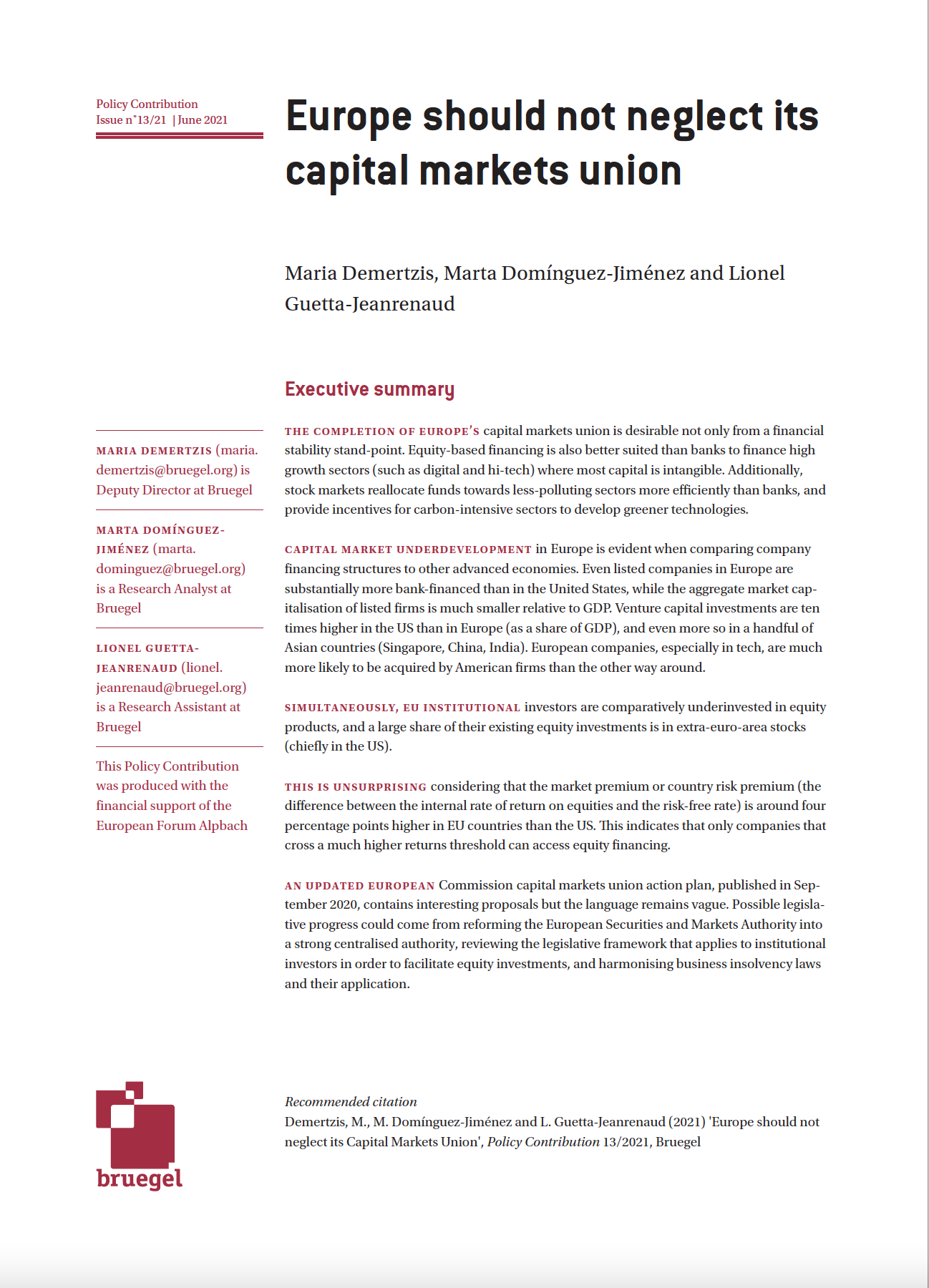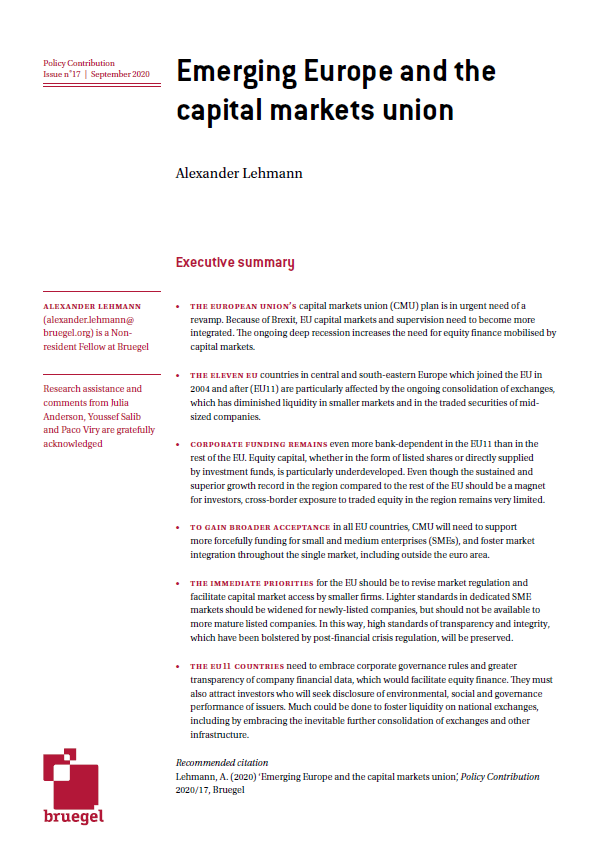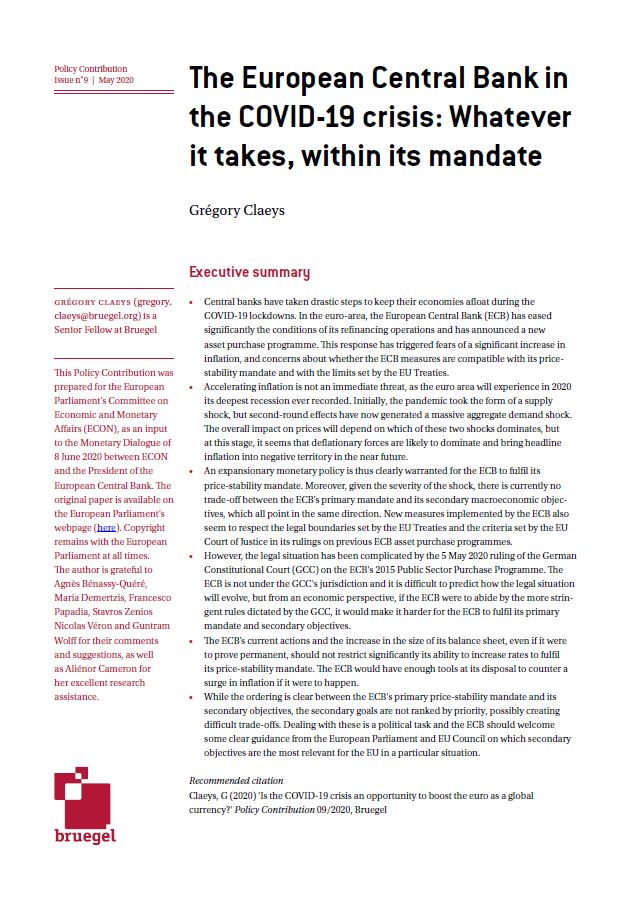Blog Post

Owning up to sustainability risks: the EU should champion international standards
To keep European Union capital markets open and integrated, new international standards should be reflected in future European law and accounting practice to provide further incentives for a reallocation of capital, reflecting in particular climate risks.










